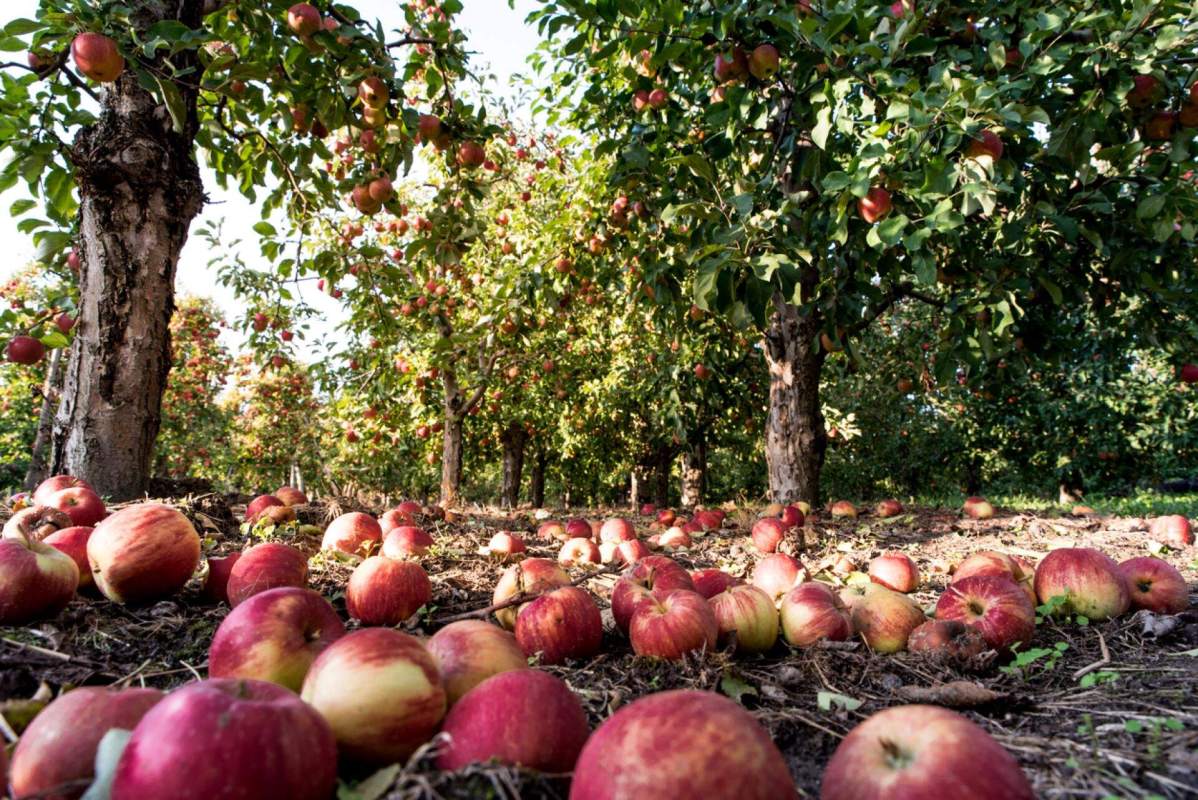University of Maryland experts have a solution for apple lovers if it gets too hot for Granny Smith.
Scientists have developed red and yellow varieties of apples that are heat resistant, an important trait as the planet continues to set high mercury records. The new varieties are also blight-tolerant, great-tasting, low-maintenance, and patent-pending, according to a report from the university.
"These apples were bred for direct-to-consumer sales. They're not meant for the big chain stores to be shipped and stored for months," Professor Emeritus Chris Walsh, who helped to develop the apples, said in the university story.
Heat resistance is a big win for the project, as Earth's temperature has risen about 2 degrees Fahrenheit since 1880. The heat-up has been the most intense post-1981, according to Climate.gov.
High heat waves in the Pacific Northwest, a warming South, and shorter winters in the north and east could strain apple production as well, university researchers report.
What's more, apple picking is a hands-on job, but there aren't as many hands to go around. "From 2016 to 2021, average annual crop production employment fell by 3% and, in apple orchards specifically, it declined by 22%," according to USApple, an organization monitoring industry statistics.
Year-over-year apple production in the United States, however, is up 2.7%, according to the latest USApple stats. That's a sharp contrast to China, where production fell more than 20%, per the organization.
The new varieties from Maryland are meant to alleviate some of the labor trouble. The experts said the trees require less pruning, as an example of one perk.
Axios reports that the Maryland species are smaller than commercial apple trees. This was accomplished by tinkering with the trees' genetics.
"These trees require a lot less hand labor compared to apples that are available to growers now," Walsh said in the university story. "We can't say they're non-pruning, but the pruning a farmer would do is minimal on these trees."
It's a project three decades in the making, starting when Walsh planted 5,000 seedlings. The team expects the new red and yellow apples to be sold at fruit stands, farmers markets, and pick-your-own orchards, per the university report.
To help reduce waste, apple buyers can take some easy steps at home to make sure their produce stays fresh longer. Soaking apple slices in sea salt and cold water keeps them from browning quickly, for example, according to online sources.
Or, as is the case with Maryland's new varieties, there's no need to wait.
"They're meant to be eaten right off the tree," Walsh said in the lab report.
Join our free newsletter for weekly updates on the coolest innovations improving our lives and saving our planet.









